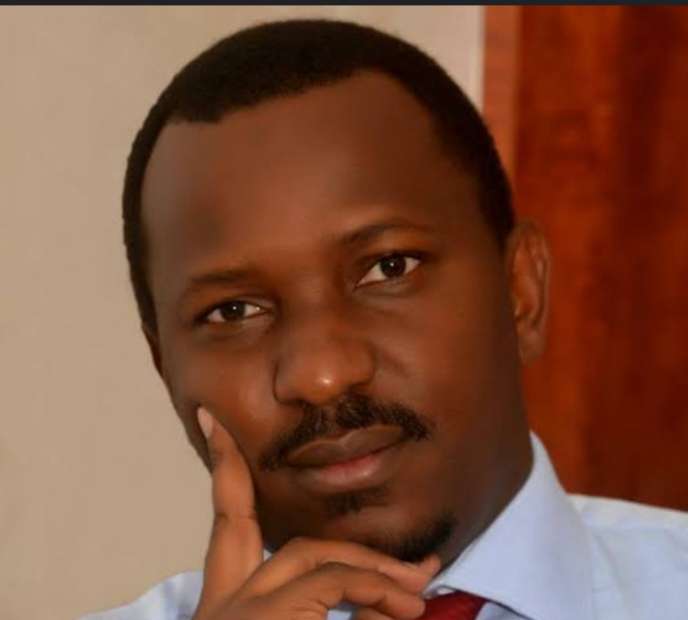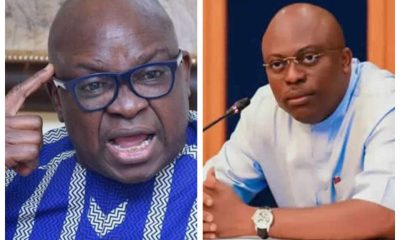Sports
Restructuring sports sector returns Nigeria to old ways

– Challenges Dikko’s vision for change
In a significant reform aimed at reshaping Nigeria’s sports landscape, President Bola Tinubu recently scrapped the Ministry of Youth and Sports Development, and replaced it with the National Sports Commission (NSC). This decision, aligning with the administration’s commitment to efficient governance and specialized focus, marks a shift towards building a sustainable and productive sports sector for the country.
But the nation has been along this path before, and the obvious question is why the old structure was changed and the necessity for the return. Indeed, the era of the National Sports Commission marked the golden days of sports in the country, when Nigeria attained it’s highest performance in the sector across all the sports. It was such performance that made it attractive to upgrade it to a ministry.
However, the result had not matched the expectations, as politics, corruption, and bureaucratic control combined to stifle the objective of empowering the ministry, and the performance of individual sports. The obvious question now is, will anything really change, and will the systemic problems that necessitated the new reform allow the NSC to perform?
At the forefront of this mission is Shehu Dikko, appointed as Chairman of the newly established NSC. His extensive experience in sports administration, including his transformative work with the League Management Company (LMC), positions him as a capable leader ready to initiate change.
Scrapping of Sports Ministry
The dissolution of the Ministry of Youth and Sports Development reflects a strategic push aimed at addressing longstanding challenges within Nigeria’s sports sector. Under the Ministry’s dual mandate, resources were often spread thin across youth and sports initiatives, leading to inefficiencies. The establishment of the NSC is intended to resolve these issues by creating a dedicated commission singularly focused on sports.
This restructuring will allow for a more specialized, streamlined, and professionalized approach to sports administration, aligning Nigeria’s sports governance with global best practices.
President Tinubu’s decision also reflects a broader economic strategy, emphasizing public-private partnerships as a means to diversify funding sources and reduce reliance on government budgets. The NSC’s commission-based model is expected to attract private investment, sponsorships, and partnerships, thus bolstering Nigeria’s sports industry.
Goals of NSC
The NSC’s overarching goal is to drive sports as a profitable sector contributing significantly to the nation’s GDP. Dikko has set an ambitious target of achieving a 3% GDP contribution from sports in the next four years. This target underscores a shift from a medal-focused approach to a broader vision of sustainable sports development, where domestic sports infrastructures are strengthened and the sector is positioned as an economic powerhouse.
Dikko has identified three primary pillars for achieving this transformation: They include establishing a legal framework, which is key to creating a stable sports economy; investing in infrastructure by developing world-class infrastructure and moving from elite sports venues to community-based facilities; and driving sports as a national asset entitled to special privileges, regulations, and concessions.
Dikko’s vision
Dikko envisions a sports sector that goes beyond merely competing internationally. Instead, his focus is on establishing a foundation for long-term success.
“When we set the foundation right, the results and the winning of medals will naturally come sustainably, and that should be the new mindset,” Dikko remarked during the formal handover ceremony at Abuja’s Moshood Abiola Stadium. This shift from immediate results to sustainable development underscores Dikko’s strategic approach to transforming Nigerian sports.
Immediate priorities
The immediate focus is creating a structure for talent development by building a framework that supports athletes from grassroots to elite levels.
It also involves engaging private sector investments; and improving coordination with educational institutions to make sports a viable career option, helping young Nigerians see the potential of sports as a lifelong pursuit.
Global Best Practices
The creation of the NSC is inspired by successful sports commissions in other nations. Countries with strong sports sectors typically operate independent sports agencies that manage their sports development agendas, free from bureaucratic constraints. This allows for a more streamlined and professional management approach, setting clear performance expectations and aligning with global standards.
Challenges and opportunities
Despite the promise that the NSC holds, the path to transforming Nigerian sports is fraught with challenges. The poor performance of Nigerian athletes in recent Olympic Games and administrative controversies surrounding sports federations highlight the sector’s deep-rooted issues. A particular sore point has been the lack of sufficient facilities for sports.
Nigeria currently struggles with inadequate infrastructure, to the extent that few venues meet international standards. Addressing these deficiencies will be critical to achieving Dikko’s vision.
Further, Nigeria’s sports governance has often been plagued by scandals and bureaucratic inertia, which hinder effective development. The expulsion of Nigerian athletes from the Tokyo 2020 Olympics over doping violations and administrative lapses are notable examples.
Dikko has acknowledged the need for reform, emphasizing that “we cannot continue to run in cycles.” His administration’s focus on building a stable sports economy and implementing performance-based measures offers hope for overcoming these obstacles.
Stakeholder Support
Dikko’s appointment has been well received by key stakeholders, with prominent figures, such as former Super Eagles captain Austin Jay Jay Okocha expressing optimism on his X handle, the ex-footballer, who has witnessed Dikko’s previous successes in the LMC, believes the NSC Chairman’s vision and experience will “reposition Nigeria’s sports among the community of nations.”
Okocha added that having seen what Dikko did as the Chairman of the League Management Company, where his policies helped reform the league.
Similarly, sports journalist, Fred Edoreh, remarked via his column that Dikko’s appointment is a step in the right direction, highlighting his record of transforming Nigerian football and attracting private investment.
“To achieve success, Dikko has called for broad-based support from stakeholders across Nigeria’s sports ecosystem.
“The NSC’s collaborative model will require active participation from sports federations, athletes, private companies, and educational institutions to create a cohesive and productive sports environment.
“The establishment of the National Sports Commission under Shehu Dikko’s leadership marks a new chapter for Nigerian sports.
About Dikko
Dikko’s career in sports administration is marked by significant contributions, notably his leadership in the League Management Company (LMC), where he facilitated landmark sponsorships and partnerships. Under his management, the LMC achieved a broadcast rights deal worth approximately $8 million annually, helping to elevate Nigeria’s football league to new heights.
Dikko’s initiatives not only increased stadium attendance but also attracted numerous brand sponsors, fostering an ecosystem where sports could thrive commercially.
As Chairman of the LMC, Dikko also spearheaded partnerships with international leagues, most notably with Spain’s La Liga, providing Nigerian club managers with hands-on training in Spain. These exchanges, along with his efforts to promote youth development in clubs, strengthened the foundation of Nigerian football and earned him a reputation as a visionary sports administrator.
His contributions were recognized by the Confederation of African Football (CAF) and FIFA, which appointed him to prominent committees for inter-club and stakeholder relations.
Dikko’s extensive experience, including his consultancy work with the Nigerian House of Representatives to draft the original NSC bill in 2008, has prepared him well for his role as NSC Chairman. His educational background, with degrees in Quantity Survey, Management, and Business Administration, coupled with numerous certifications in sports management, have given him the tools needed to lead the NSC.












